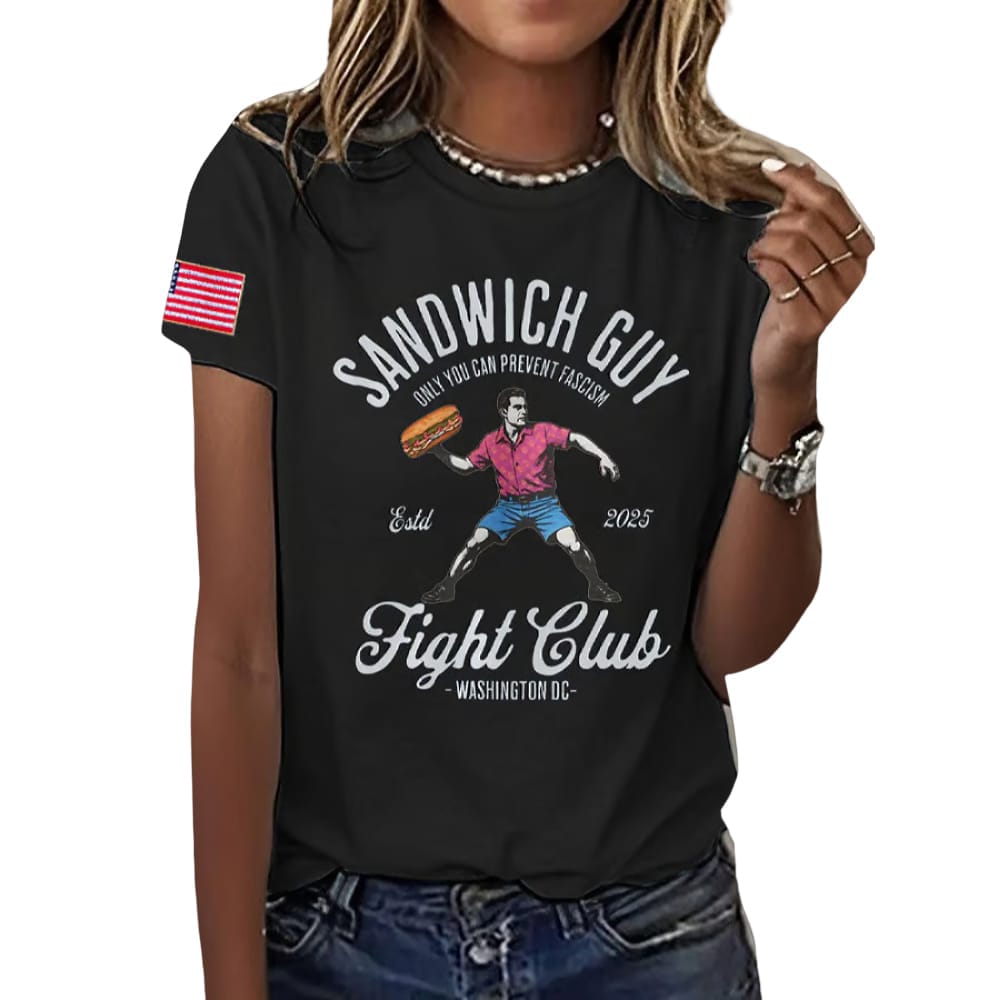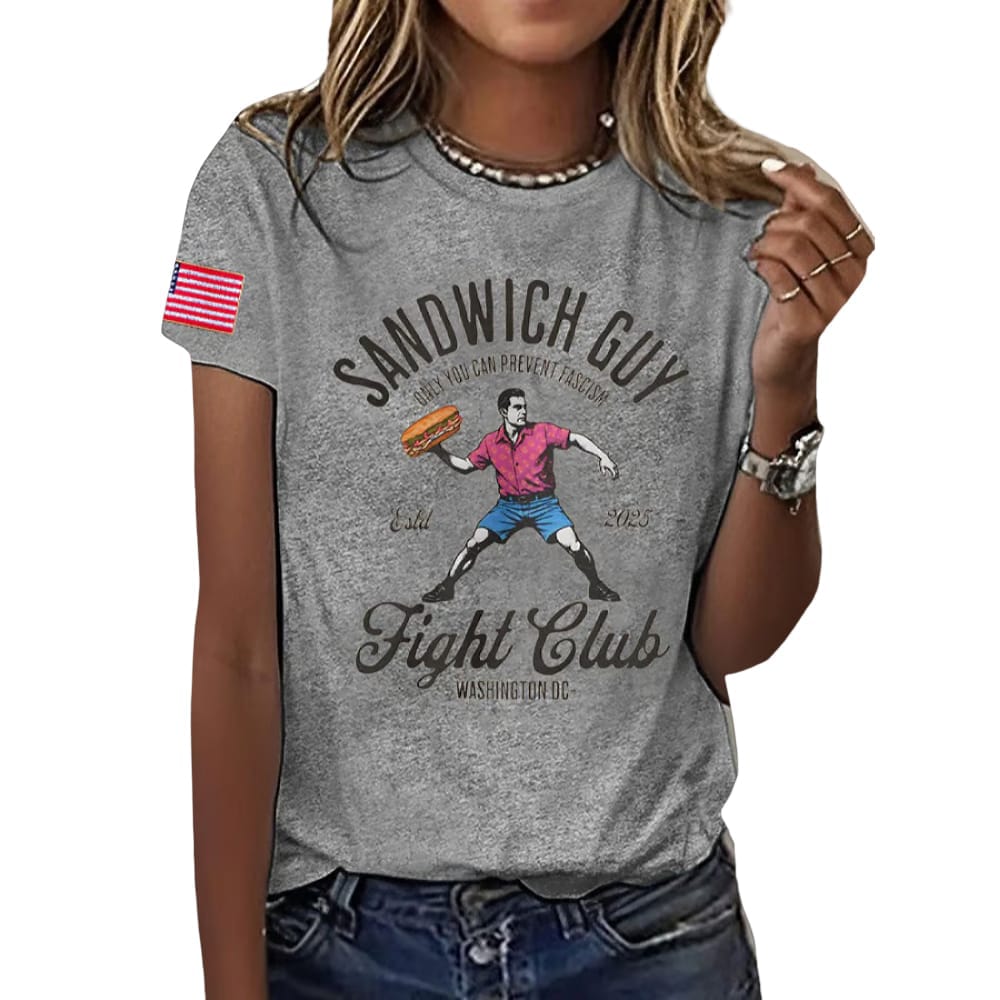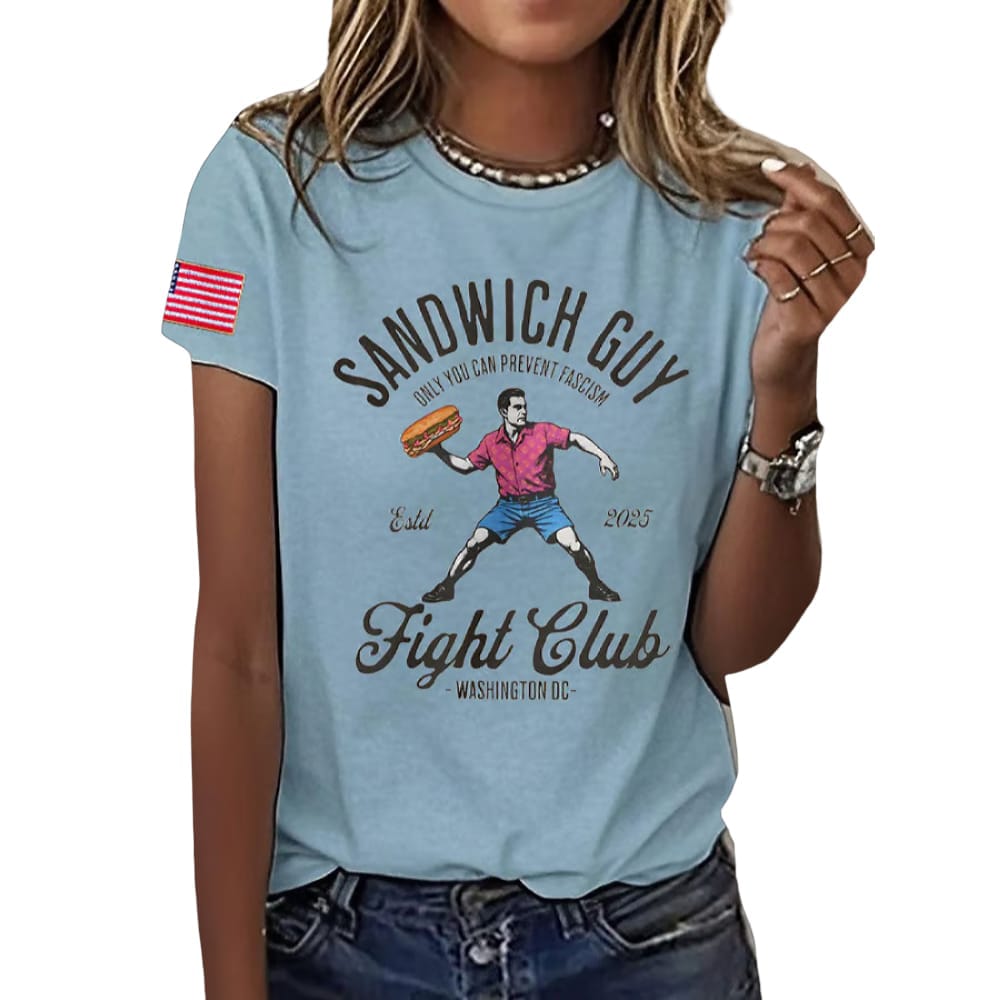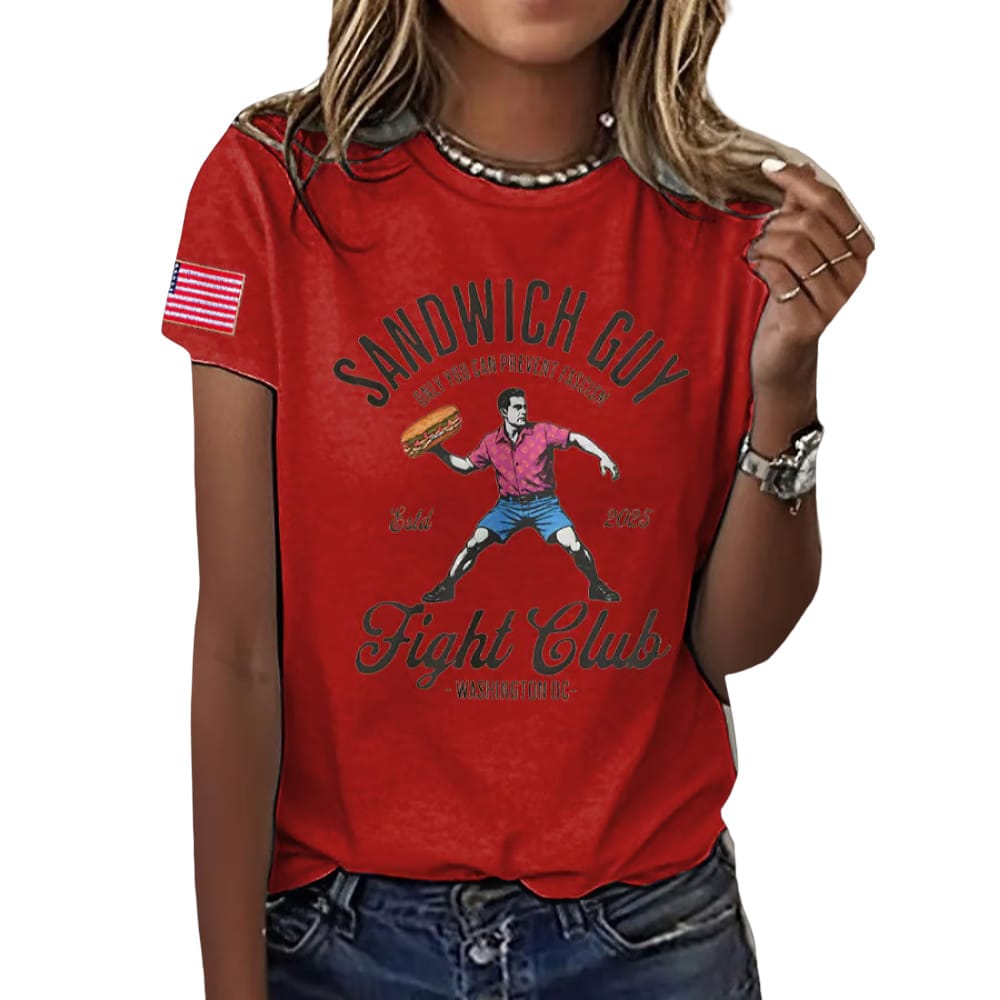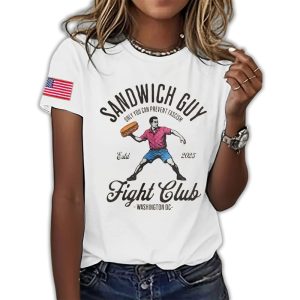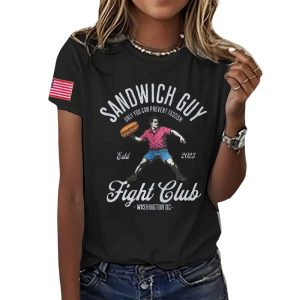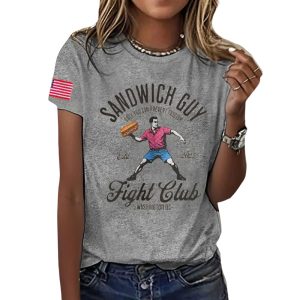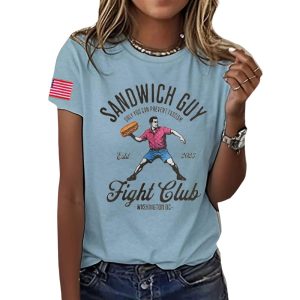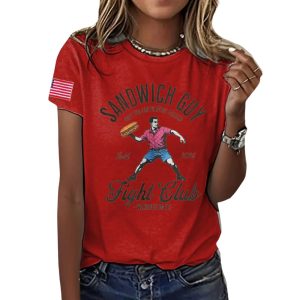Sandwich Guy Resist 8647 T-Shirt
$30.95

Products are fulfilled and shipping from the
Feb 27
Mar 04 - Mar 06
Mar 12 - Mar 16
Bold, defiant, and rooted in cultural resistance, the Sandwich Guy Resist 8647 T-Shirt merges satire with history. Featuring an iconic figure armed not with weapons but with a sandwich, it symbolizes everyday resilience against authoritarianism. Inspired by social movements and street art, this design connects fashion with a legacy of protest. Perfect for those who value freedom, humor, and the courage to resist, it’s more than apparel—it’s a reminder of the fight for dignity.
Please be informed that our product is available colors: Blue, Gray, Red, Black and White. Kindly remember to select the color you wish to purchase.
Sandwich Guy Resist 8647 T-Shirt – Humor Meets History in Defiance
The Sandwich Guy is not your average hero. Drawn in a striking stance, he holds a sandwich high as if it were both shield and weapon. This character channels the spirit of resistance, transforming something as ordinary as food into a bold emblem of defiance. His image recalls the protest posters and underground zines that fueled movements for freedom throughout modern history.
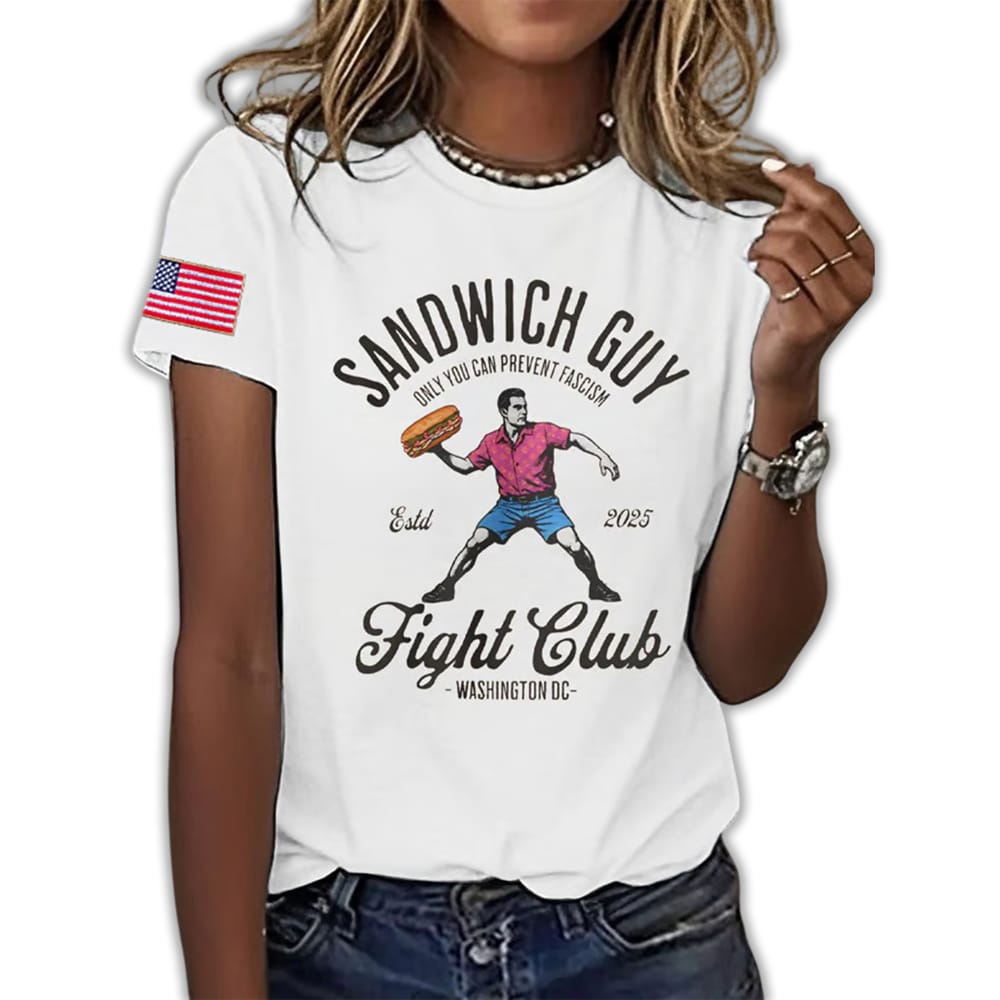
The phrase on the shirt, “Only You Can Prevent Fascism”, evokes a powerful call to action that blends satire with urgency. It draws inspiration from the slogans of grassroots campaigns where humor was often a subversive weapon. By wearing this shirt, you’re echoing voices of artists, students, and everyday people who have historically turned creativity into resistance.
The “Fight Club” reference ties to the cultural memory of rebellion against conformity, while “Washington DC” grounds it in the epicenter of political struggle. From marches on the National Mall to contemporary movements, the design taps into a lineage of dissent where individuals stood against systems larger than themselves. The year “2025” situates it firmly in our time, marking it as part of an ongoing conversation about power, unity, and vigilance.
This t-shirt transcends clothing—it’s a wearable manifesto. Each graphic detail carries meaning, from the clenched stance of the figure to the deliberate pairing of satire and seriousness. It offers social proof by connecting the wearer to a long history of public resistance, reminding us that symbols of protest don’t have to be grand—they can be everyday objects reimagined with purpose.
Shipping Policy & Manufacturing Info
Our shirts are made when ordered. Due to the time variability of on-demand manufacturing, we offer 2 options for how quickly you want to receive your order. You can select from the following choices in checkout.Standard Shipping ($4.99+)
- Orders using this option generally arrive 5-10 days (U.S. orders) and it takes 2 weeks for International orders after being manufactured and shipped. (See notes below)
- Manufacturing times for this option vary more around busier times of the year or during extreme circumstances such as covid-19 shutdowns.
Shipping and expedited manufacturing ($19.99+) (U.S. Only)
- Orders using this option jump to the front of the manufacturing queue which can generally save a couple days (or more during busier times of the year).
- It's highly recommended to use this option if you are ordering for a specific event or holiday.
- Orders using this option generally arrive 2-3 days after being manufactured and shipped. (U.S. only)
- Orders using expedited manufacturing will be printed when the next batch of orders are processed which can vary depending on seasonality and other factors.
Please Note:
- We do not guarantee shipping or arrival dates.
- Manufacturing during the majority of the year takes between 1-5 business days (Mon-Fri) however can take more than a week during the heaviest shopping times of the year. Extreme circumstances such as covid-19 may delay order manufacturing and/or shipping by an additional week or more.
- All manufacturing and shipping times mentioned are just estimates and will vary.
- Some of our popular designs may be pre-printed and may ship out faster than less commonly ordered designs/style/color combinations.
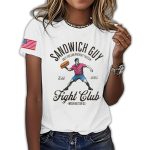 Sandwich Guy Resist 8647 T-Shirt
Sandwich Guy Resist 8647 T-Shirt
| 5 star | 0% | |
| 4 star | 0% | |
| 3 star | 0% | |
| 2 star | 0% | |
| 1 star | 0% |
Sorry, no reviews match your current selections

